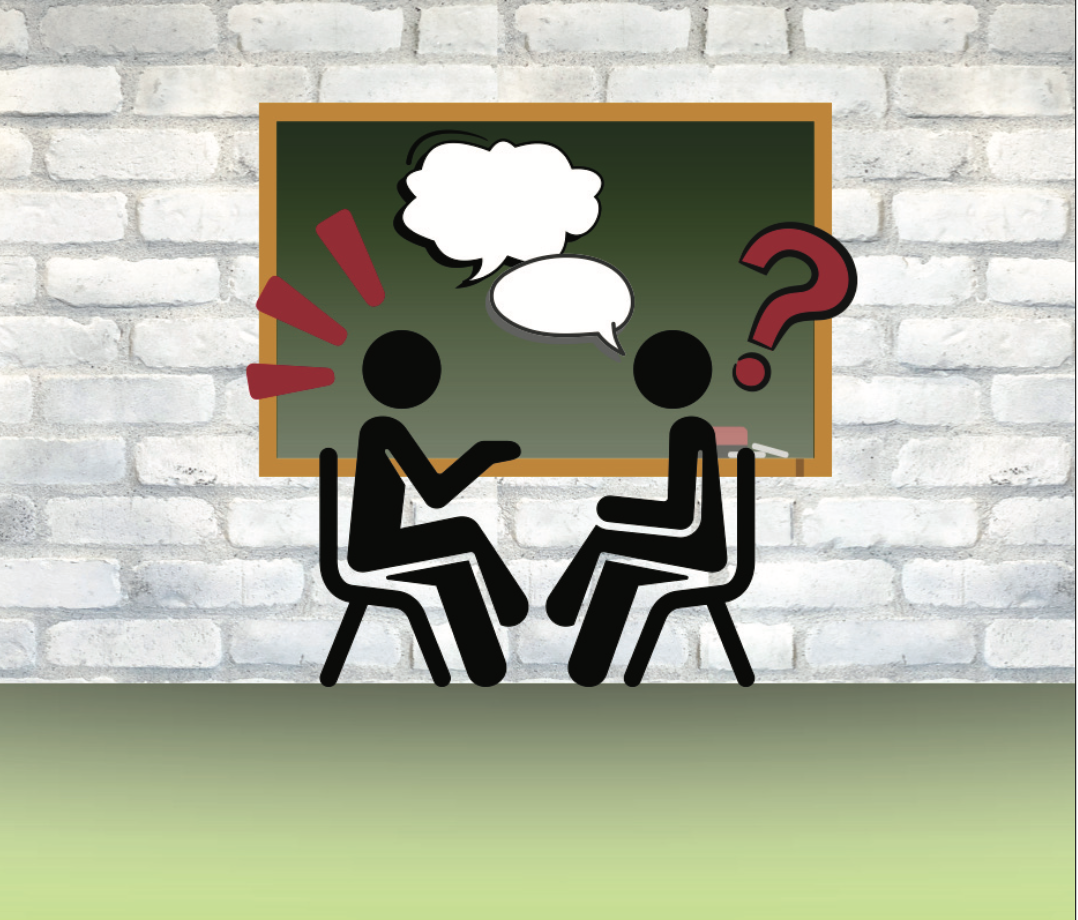
Graphic by Joaquin Cruz
When I discuss my social and political beliefs with others around me, I want to do it without the intent to divide us, but rather unite in hopes for a more equitable community.
After the death of Charlie Kirk, a conservative activist known for debating students on college campuses, I found myself talking to my colleagues about freedom of speech and how to better unite ourselves rather than divide over beliefs and disagreements.
Kirk was shot and killed at Utah Valley University on Sept. 10, which led to a trail of assassination videos on social media platforms from attendees.
I initially saw the assassination video on Instagram, where I saw different perspectives of the graphic death.
I immediately began to think about what this meant for legal changes in public settings regarding the freedom of speech, advocacy, and events for public campuses.
Following his death, educators were punished for social media posts about his death– most of which rejoiced in his assassination, according to a Sept. 18 NBC News article.
Over 50 educators have faced some form of repercussion, according to a USA Today article.
The First Amendment protects freedom of speech, press, religious expression, petition and assembly, but clearly limits are set over what speech is and isn’t protected.
The opinion of the public should be heard, whether in private or public conversation, but I don’t agree that it should always be met with punishment.
Tenured professor of the University of South Dakota, Michael Hook, used his Facebook page to say he has no feelings of empathy for his death, according to a Sept. 26 article from Inside Higher Ed.
Hook was put on leave for his comments, but later, a South Dakota district court judge ordered the university to reinstate Hook, according to the same article.
This opened a broader discussion on whether or not we can or cannot talk about politically related events in public forums.
Kirk utilized a debating strategy to get his social and political beliefs across to those willing to argue against him, arguably dividing people over his conservative statements.
About three months ago, Kirk’s official YouTube channel posted a video showcasing his seven best abortion debates from the spring of 2025.
A lot of debates in the compilation are to promote Kirk’s and Turning Point USA’s political beliefs and agenda, as shown in the video.
Another YouTube channel, Jubilee, is notorious for uploading debate videos, which most of the time lead to arguing and tension amongst participants, as shown in a video titled, “1 Conservative vs 25 Liberal College Students (Feat. Charlie Kirk).”
Although he can unite those who follow his political beliefs, debates will often turn into arguing and dismissal if Kirk or other members of Turning Point USA don’t agree.
Regarding what can and cannot be said, the Supreme Court has undergone multiple landmark cases regarding the First Amendment.
Brandenburg v. Ohio from 1969 ended with the court ruling that advocacy of speech isn’t the problem, but rather inciting harmful action, according to a case overview from the Supreme Justia website.
Comments made regarding Kirk’s death likely read as insensitive and pushing for incitement of violence against others with far-right-leaning political ideologies.
But it’s crucial to openly discuss the thought process on social and political subjects as they continue to evolve.
In a United States Institute of Peace (USIP) document comparing dialogue and debate, dialogue is said to be about collaborating and working towards mutual understanding, while debate is argumentative and working to prove the opposing side is wrong, according to the USIP document.
Often, I talk about the current U.S. Immigration and Customs Enforcement (ICE) policies and atrocious actions agents are performing on allegedly illegal immigrants with work colleagues.
I have a colleague who has fairly conservative political beliefs, which directly affect my well-being.
However, I have to set this aside so I can try to understand why they believe and think the way they do.
By talking to someone who opposes my beliefs and hurts my well-being, maybe I can educate and push for a progressive outlook on current social and political affairs.
Some subjects are inherently sensitive to talk about, like marginalized communities facing tense social and political issues, which can make communication tense.
An example that I find commonly is about U.S. queer and trans representation.
Similar to the limitations on laws surrounding freedom of speech, I also have my own.
Despite the strategy of listening and then educating, there are times when I won’t surround myself with the same people who are calling for hateful and bigoted remarks on my existence.
I grew up in Felton, a predominantly white presenting town in the Santa Cruz mountains and I was one of the few people of color.
As a kid, there were times when I could recall being bullied due to the color of my skin, not just by kids my age but by adults.
When it comes to remarks as hateful as those white 40-something-year-old adults can make to a 10-year-old Chicano child, it’s not worth trying to exchange ideas.
It’s unfair to debate with someone who will never agree with my skin or my culture, which is something I saw in many Kirk debate videos.
Participants in the Jubilee video overlap conversation over topics like Diversity, Equity, and Inclusivity (DEI), abortion and questioning the legitimacy of being transgender.
I do want to help create a change in my community, despite how large or small it may be, but I can’t do it if I’m being threatened.
At the end of the day, my goal is to work towards uniting us, rather than causing more division, but I will continue to advocate for my beliefs just as another person will do the same.